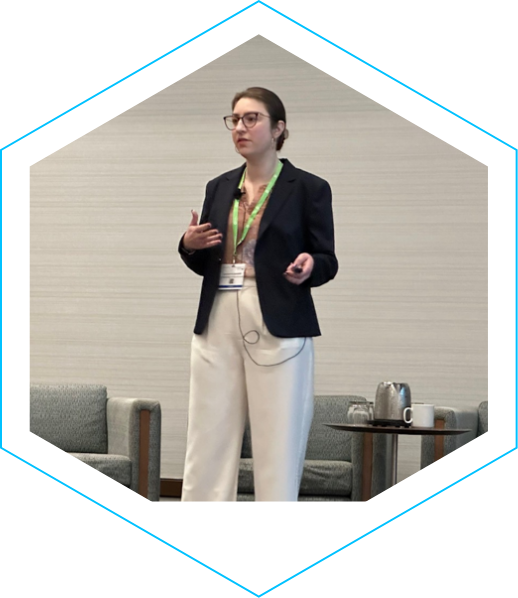
Organic Process Research and Development
Event overview
We are so delighted to finally be able to bring our flagship OPRD Conference to Basel after two years of postponements.
DO YOU WANT TO IMPROVE EFFICIENCY AND INNOVATION IN YOUR SYNTHETIC ROUTE DESIGN, DEVELOPMENT AND OPTIMISATION?
The efficient conversion of a chemical process into a process for manufacture on tonnage scale has always been of importance in the chemical and pharmaceutical industries. However, in the current economic and regulatory climate, it has become increasingly vital and challenging to do so efficiently.
At Organic Process Research & Development Conference, you will hear detailed presentations and case studies from top international chemists. Our hand-picked programme of speakers has been put together specifically for an industrial audience. They will discuss the latest issues relating to synthetic route design, development and optimisation in the pharmaceutical, fine chemical and allied fields.
Unlike other conferences, practically all our speakers are experts from industry, which means the ideas and information you take home will be directly applicable to your own work.
Please contact us if you are interested in Exhibiting or Sponsoring this event: [email protected]
Benefits & Keeping you Safe at the Event
WHO SHOULD ATTEND?
- Process Research & Development Chemists
- Chemical Engineers in Industry
- Heads of Departments & Team Leaders
HOW WILL YOU BENEFIT FROM ATTENDING?
- Continuing Professional Development (CPD ) keeps you up to date on current and emerging developments.
- Learn from a wide range of industrial case studies given by hand-picked industrial speakers.
- Take home relevant ideas and information that are directly applicable to your own work
- Save time. Our intensive, commercial-free programme means less time away from work.
- Network with the key people in the industry during the networking events
KEEPING YOU SAFE
As we continue to move forward with hosting our events in-person in 2022, we have added a series of Health & Safety guidelines and precautions in order to prepare for event safety, we ask that all our delegates read and adhere to the following:
Before the event, we ask you to…
- Adhere to the travel restrictions and guidance from both your home and destination countries – please refer to your government guidelines
- Evaluate your own health and that of those you are in close contact with.
Do not attend if you…
- Are showing symptoms or signs of sickness or have been in contact with anyone who has tested positive of COVID-19 within 10 days of the event date.
- Have tested positive of COVID-19 within the last 10 days from the start of the event date.
On Site Health & Safety Measures….
- Requiring attendees and exhibitors to follow the guidance of the WHO for everyday preventive actions to help prevent the spread of respiratory viruses
- We suggest a “No Handshake” policy during the event
- We will provide sanitisers for use throughout the event and ensure the venue has plenty of cloakroom facilities.
- Although is it no longer mandatory, there will be PPE available for those who decide wear a mask and we ask you respect each other’s choice to do so.
IMPORTANT
It is preferable that all attendees are fully vaccinated against Covid-19 when attending our events, however we understand that personal circumstances may mean that this is not always feasible. If you have any concerns please contact us at [email protected].
Scientific Update Ltd cannot fully eliminate all risks or guarantee your safety – especially risks posed by COVID-19 or its variant strains – but ultimately we do ask all our delegates to read and adhere to our procedures before and during the event. We will closely monitor the official guidance from health authorities, local governments, and the World Health Organisation (https://www.who.int/) and update our guidelines accordingly.
Optional Short Course - Organocatalysis
Organocatalysis Short course
Friday 23 September 2022 | 2.00pm – 5.30pm
There is an additional fee of €399.00 to attend the short course, this fee will include refreshments and a course manual.
Over the past decade, the application of small-molecule organic catalysts to solve synthetic problems has gained traction in both industrial and academic settings. This short course will look at a wide and expanding range of catalyst classes and diverse activation modes in combination with increased mechanistic understanding and practical applicability has fuelled their use across many areas of synthesis, including asymmetric catalysis and construction of important chiral molecules and building blocks. Small molecule organic catalysts offer a range of practical advantages over macromolecular (enzyme) or precious metal catalysts, including air and water stability, low cost, availability from renewable resources and relatively low toxicity. Organocatalysis is recognised as an inherently green technology and often has no counterpart in the more established catalysis regimens.
Feeback from 2021 delegates
“Very useful course for chemists who want to learn or to increase their knowledge in organocatalysis.”
Sponsorship Opportunities
We have several sponsorship opportunities still available for this conference. These include networking and reception sponsorship.
Your company logo with link to your website would appear here and for premium sponsorship such as networking and reception, adjacent to the conference pages as well.
If you are interested in sponsoring this conference, please contact Dr Claire Francis: [email protected]
MEDIA SPONSORS
 |  | ||
| | |||
Event speakers
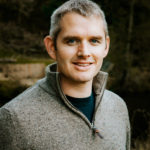
Michael started his chemistry career by undertaking a PhD in organic chemistry at the University of York, subsequently entering into the pharmaceutical industry working in organic synthesis at both CRO and start-up companies. Michael joined Lhasa Limited in 2015 as part of the Mirabilis project, aiding the research and curation of knowledge relevant to understanding the potential for purging of mutagenic impurities from drug substance syntheses. In 2017, Michael took over leadership of the scientific development of Mirabilis, working closely with leading members of the purge calculation community to develop both Mirabilis and the broader purge concept. More recently, Michael has been involved with a number of projects focussing on the ongoing nitrosamine challenges facing the pharma industry. As part of this work Michael has been working with academic institutions and industry bodies, such as the IQ consortium, to find collaborative approaches to both understanding and subsequently addressing nitrosamine issues related to drug quality.

| Education | BSc & MSc in Chemistry at University of Basel PhD at ETH Zürich, Group of Prof. Jeffrey W. Bode Postdoc at University of California, Berkeley, Group of Prof. F. Dean Toste |
| Career | 2015-2017: Labhead, Process Chemistry at Actelion Pharmaceuticals Ltd., Switzerland 2017-2020: Senior Scientist, Chemistry Process R&D at Idorsia Pharmaceuticals Ltd., Switzerland since 2020: Group Leader, Chemistry Process R&D at Idorsia Pharmaceuticals Ltd., Switzerland |
| Awards | Oral Presentation Award at SCS Fall Meeting 2013 SNF Early.Postdoc Mobility Fellowship 2014 |
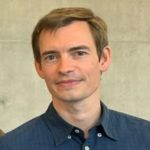
Dr. Michael Dieckmann obtained his PhD in Organic Chemistry in 2013 at the University of Heidelberg, Germany on natural product Total Synthesis. After postdoctoral studies at EPFL, Switzerland on homogeneous catalysis, he joined Syngenta in 2016 where he has worked at Syngenta research-, development- and production-sites on early research projects to large-scale production of agrochemicals. Since 2021 he holds a position as process chemistry specialist at Syngenta Münchwilen in the development of new agrochemicals. His research activities focus on novel-type technologies such as photo- and electrochemistry and their large-scale implementation.
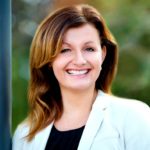
Anne Kaaden studied business chemistry at the Christian-Albrechts University in Kiel. Main focus was on innovation management and bio chemistry. She started her career in the field of flow chemistry 2012 at the company Ehrfeld Mikrotechnik as a business manager. Areas of responsibility where market development and building of business in US, Russia and parts of the EU. Since 2016 Anne additionally took over the management of marketing. Now as the head of marketing Anne is promoting the new technology platform of micro- and millireactors on fairs and conferences worldwide.

1968: Born in Rothenburg, Germany
1993: Diploma degree in chemistry at university Würzburg
1996: Dissertation at university Würzburg at Prof. Bringmann incl. research exchange to US (National Cancer Institute, Maryland)
Total Syntheses of anti-HIV active Michellamines and related analogs
Summa cum laude as well as awarded by the “curatorship of Franconian memorial foundation” due to TOP-dissertation of whole university.
Scholarship by “Fonds of chemical industry”.
1996: Start industrial career at BASF
Research Scientist within Crop Protection Research
1999-2001: Assistant Plant Manager (Multi-Purpose Plant Fine Chemicals)
2001-2003: Plant Manager (Multi Purpose Plant Plant Fine Chemicals)
2003-2006: Technology Manager
Technological responsibility for several active ingredients at different production locations with respect to process & synthesis optimization, yield increase, waste reduction, reduction of Cost of Goods, Capacity increase
2006-2011: Head of Global Responsible Care within Global Operations
Ensurance of safe operations as well as quality for active ingredients as well as formulated products
2012-today: Leading Chemical- and Process Development within Crop Protection Research
Development of new production processes for new active ingredients with focus on safe, robust and sustainable processes by minimum costs
2016: Awarded as “Senior Executive Expert Process Development” within BASF
Official announcement within BASF Group: “Over the past 20 years, Roland has held positions in R&D, technology and manufacturing, supporting several key projects during development and production. During his tenure with BASF, Roland has gained broad expertise in process development and operations, and he is recognized as an expert within BASF, in the industry and in academia”
2014-2017: Teaching assignment at Johannes Gutenberg-University Mainz
Teaching and examining of bachelor students. Subject on Technical Chemistry with focus on Process Development within study course “Applied organic chemistry”
2017-2021: Lecturer at Johannes Gutenberg-University Mainz
Reading “Industrial process technology with focus chemical process development”
2022: Lecture as Guest Instructor at the IIT Bombay within “Techno-commercial Aspects within Fine Chemicals”
Patents / Publications (only industrial career, without activities at university)
Holding more than 250 patents or applications respectively globally.
Prof. Kappe, Roland Götz – Org. Process Res. Dev. 2017, 21, 1, 125
Prof. Hartwig, Roland Götz – Angew. Chem. Int. Ed. 2021, 60, 399
Prof. Reisman, Roland Götz, JACS 2021, assigned to editors
Prof. Hashmi, Roland Götz, Green Chemistry 2021, DOI: 10.1039/D1GC02602J
Invitation to expert conferences and holding lectures at universities
2020 Shanghai (Shanghai Institute of Organic Chemistry, CAS, and Shanghai Tech University), The XXIII International Conference on Organic Synthesis (23-ICOS), postponed to 2022 due to Covit
2017 University of Münster – FoChin (“Crop Protection Research & Process Development”)
2016 Prague (“Challenges and Solutions within Process Development of a Large Scale New Fungicide”)
2015 Indian Institute of Technology Bombay (“Industrial Process Development at BASF Crop Protection“)
2015 Pune (“Process Development within Crop Protection”)
2015 Shanghai Institute of Organic Chemistry („Crop Protection Research at BASF with focus on Process Development“)
2014 Brussels (“Process Development of Active Ingredients for Crop Protection“)
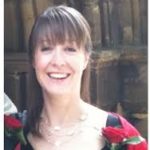
Starting her research in the area of continuous flow synthesis in 2000, Charlotte obtained her PhD in 2003 entitled ‘Microreactors in organic synthesis’. This was followed by 5 years of postdoctoral research into the rapidly developing field of continuous flow synthesis, specifically in the area of heterogeneous catalysis for small molecule synthesis.
In 2008, Charlotte joined Chemtrix BV as a Senior Chemist where she worked on the commercialisation of lab-scale micro reactor apparatus. In 2010 she was promoted to Chief Technology Officer & in 2013 to CEO, where she continues to research & develop continuous flow systems & solutions for industrial partners. More recent developments at Chemtrix BV have focussed on industrial flow reactor implementation for flexible tonne-scale production – with several projects concerned with strategic relocation of manufacturing assets.
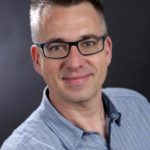
Martin Schürmann is Principal Scientist for Biocatalysis at InnoSyn BV in Geleen, The Netherlands. InnoSyn is a young SME that originated from a management buy-out of the DSM chemical R&D department Innovative Synthesis in 2017. Before he held the position of Principal Scientist Biocatalysis at DSM as well as various other R&D positions after joining DSM in 2002.
Martin Schürmann studied Biology at Ruhr-University Bochum and performed his PhD thesis and a short Post-Doc at the Institute of Biotechnology at the Research Center Jülich in Germany, obtaining his PhD from Heinrich-Heine-University Düsseldorf in 2001.
Martin Schürmann is co-author of more than 70 peer-reviewed scientific articles, book chapters and international patents or patent applications. From 2015-2017 he was coordinator of the EU Horizon 2020 Innovation action ROBOX, a project to develop novel biooxidation enzymes and demonstrate their application on pilot plant scale. Next to being member of the Scientific Board of ESAB (European Society for Applied Biocatalysis), Martin is since 2021 also co-chair of the joint working group Biotransformations of DECHEMA and the German Association for General and Applied Microbiology (VAAM). Since 2021 he is a member of the American Chemical Society Green Chemistry Institute Pharma Roundtable Biocatalysis team.
His main interests are applied biocatalysis, microbial production of chemicals and green chemistry (chemical route scouting for more sustainable production processes), especially bridging the gap between academic and industrially applied biocatalysis.
Professional Experience
Since May 2017 Principal Scientist Biocatalysis at InnoSyn B.V. in Geleen (The Netherlands)
2016-2017 Principal Scientist Biocatalysis at DSM Chemical Technology R&D in Geleen (NL)
2013-2015 Senior Scientist Biocatalysis at DSM Chemical Technology R&D in Geleen (NL)
2006-2013 Scientist Biocatalysis at DSM Pharmaceutical Products in Geleen (NL)
2004-2005 Associate Scientist at DSM Pharmaceutical Products in Geleen (NL)
2002-2004 Marie-Curie Industrial Host Fellowship (Post-Doc) at DSM Pharmaceutical Products in Geleen (NL): Optimisation and Industrial Application of Aldolases
Education
2001-2002 Post-Doc Institute of Biotechnology I, Research Center Jülich, metabolic pathway engineering of aromatics in Escherichia coli
1998-2001 PhD (magna cum laude) on C-C bond forming enzymes, Institute of Biotechnology I, Research Center Jülich (supervisors: Prof. G.A. Sprenger & Prof. H. Sahm)
1992-1998 Biology studies with Diplom graduation at Ruhr-Universität Bochum, thesis with Prof. K.-E. Jaeger: Microbiology, Biochemistry, Molecular Biology
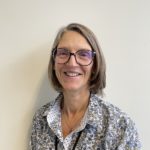
Christine Fannes studied chemistry at the university of Leuven. She joined the Organic Synthesis lab from Professor Hoornaert for her doctoral thesis (PhD).
She started her professional career at BASF Antwerp where she worked in the central analytical lab and was quality responsible for the department Intermediates.
After about 5 years, she moved to a smaller company Govin-Meyvis where she handled both inside and outside sales for parallel-synthesis equipment.
However, she missed the lab work and when about 4 years later an invitation came for a vacancy in the safety testing lab, she did not have to think long. She started as a scientist in the Process Safety Center at Janssen Pharmaceutica in April 2001 and in the meantime has more than 20 years of experience. At the Process Safety Center, she is responsible for risk analyses and safety testing at the introduction of new chemical processes in the plants. Safety tests are mainly focused on thermal stability, flammability, dust explosion characterization and Reaction Calorimetry.
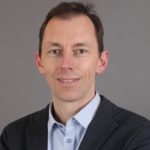
Dr. Jörg Gries did is undergraduate studies in chemistry at the RWTH Aachen in Germany and the University of York in the UK. He continued his education at the RWTH Aachen on the topics of asymmetric synthesis and organocatalysis and received his Ph.D. in 2005 under supervision of Prof. Dieter Enders. Later in 2005 he joined the Chemical Development Department of the Schering AG in Berlin as a Postdoc and soon became head of a laboratory for automated reaction and process screening, high throughput experimentation and salt screening. After the merger of the Schering AG and the Bayer Healthcare AG, he moved to the Bayer site in Wuppertal in 2008, where he consolidated all parallel reaction screening activities for pharmaceutical process development in a newly formed group.
Since 2009 he has been the leading chemist for multiple development projects (small molecule and antibody-drug conjugate), and in addition was heading the MedChem kilo lab from 2011 to 2013.
During his carrier he gathered experience from early route scouting, scale-up and industrialization, till shaping supply and filing strategies for market authorization of new APIs. In recent years his focus was on synthesis optimization and industrialization for late-stage development projects internally at Bayer and together with international partners.
Earlier this year he became Scientific Lead with focus on process chemistry and sustainability within Chemical API Development at Bayer AG Wuppertal.
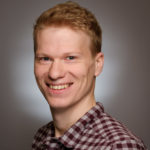
Matthew Tatton completed his DPhil at the University of Oxford under the supervision of Professor Timothy Donohoe. His research focused on new methods for aromatic molecule synthesis. He then spent a two-year post doc at Syngenta’s research laboratories in Jealott’s Hill where he carried out research into novel herbicides. In 2018 he joined AstraZeneca and currently works as an Associate Principal Scientist at the Macclesfield Campus, UK in the early chemical development department investigating new routes to clinical drug candidates.
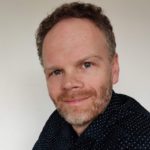
After receiving his BSc from the University of Applied Sciences in Emmen (NL), Michel Leeman was employed at Syncom. After a couple of years working at Syncom he started his PhD under the supervision of Professor Kellogg. In 2009 he received his PhD from the Rijksuniversiteit Groningen (NL) for his research on the resolution of racemates via different crystallization techniques. Nowadays, he is a project leader but is still involved with many resolution projects at Symeres.
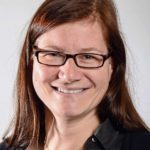
Dr. Gabriele Menges-Flanagan has more than 15 years of experience in industrial applications of flow chemistry. She is a Research Fellow at the Fraunhofer Institute for Microengineering and Microsystems IMM in Mainz and a member of the OPRD Editorial Advisory Board. She earned her Diploma in chemistry from the Johannes-Gutenberg-Universität Mainz and, after completing her PhD in Polymer Science and Engineering at the University of Massachusetts Amherst, returned to Germany to join Fraunhofer IMM (then the Institut für Mikrotechnik Mainz) in 2005. Her interests include the conversion of batch into continuous processes and the synthesis of reactive intermediates on varied throughput scales.
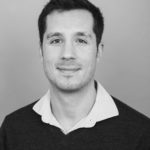
Simon Wagschal earned his Ph.D. in 2010 from École Polytechnique, Paris, France, under the supervision of Prof. El Kaïm and Prof. Grimaud.
He then delved in organometallic chemistry during his postdoctoral stay with the Kündig group in Geneva, Switzerland.
In 2013, he joined Janssen’s Chemical Process R&D group and have been involved in a dozen late-stage projects, developing and introducing new processes in the pilot and production plants.
He received the Vice Presidents’ Research Award for Outstanding Technical Achievement in 2020.
Simon recently joined the Janssen External R&D team, focusing on compounds in early development and delivering GxP batches at CRO partners.
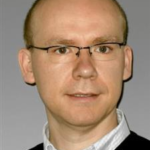
Dr. Bodo Betzemeier received his undergraduate education at the Universities of Dusseldorf Manchester and Marburg. Afterwards he moved to the Ludwig Maximilians University, Munich where he obtained his Ph.D. degree in 2000 under the supervision of Prof. Paul Knochel. After obtaining his Ph.D. degree, Dr. Betzemeier held a postdoctoral research position in Prof. Scott D. Rychnovsky’s group at University of California in Irvine from 2000 to 2001. Subsequently, he joined the Department of Medicinal Chemistry at Boehringer Ingelheim in Vienna for seven years and then moved to Boehringer Ingelheim in Biberach, Germany, where he is currently a Principal Scientist in the Department of Chemical Development, leading a multi-disciplinary team responsible for the development and implementation of efficient processes for the synthesis of APIs (Active Pharmaceutical Ingredients). Dr. Betzemeier’s research areas include the synthesis of chiral biologically active compounds and development of efficient methodologies for heterocycle synthesis on gram to 100 kg scale. He is co-author of >20 research papers and patents.
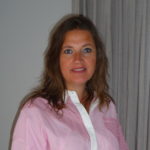
Isabelle is currently global product manager at Thar Process for the supercritical fluid chromatography (SFC) technology platform. She is also Thar’s sales manager for Europe, Middle East and Africa. Thar Process is a US based company that specializes in large scale CO2 based extraction and purification system manufacturing as well as R&D and toll processing.
Next to working for Thar Process, Isabelle is also the founder of Chromisa Scientific, a consultancy company based in Belgium. She supports academia as well as industry with demanding extraction, chromatography, purification and project management challenges, offering customization, training and support.
Isabelle holds a PhD in analytical chemistry, and has been working with analytical and CO2 technologies since more than 15 years across many industries including pharma. She has been awarded numerous times in the Powerlists of the magazine The Analytical Scientist eg as one of the most influential female scientists in the world in 2016. Isabelle is still closely connected to the scientific community, publishing and reviewing articles on a regular basis, and she is often invited as a speaker at scientific conferences.
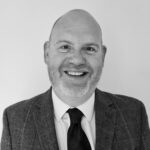
Andrew Teasdale PhD has 30 years’ experience in the pharmaceutical industry as an analytical chemist and within quality assurance and regulatory roles. In his current role he chairs AstraZeneca’s Impurity Advisory Group. Dr Teasdale has published a number of papers relating to mutagenic impurities, N Nitrosamines, extractables and leachables, and other impurity related matters. He is currently the chair of the Extractables and Leachables safety Information exchange (ELSIE) and also led a number of industry expert groups; these include both safety and quality groups within Pharmaceutical Research and Manufacturers of America (PhRMA), European Federation of Pharmaceutical Industries and Associations (EFPIA), Product Quality Research Institute (PQRI) . Andrew has also represented EFPIA in ICH Q3C, Q3D and Q3E Expert working groups. He has also advanced a number of key scientific advancements in the control of impurities as the inventor of the purge factor concept and the instigator of the development of Elemental Impurities database for excipients.
Sponsors
Silver Sponsors


Bronze Sponsors
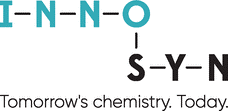



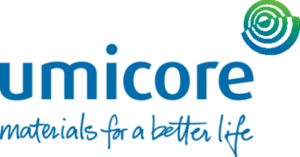
Interested in sponsoring an event?
If you are interested in Sponsoring this event we still have some great sponsorship opportunities available at the conference. See our sponsorship section on the advantages that sponsorship can bring to your business or contact Dr Claire Francis at [email protected]
Exhibitors
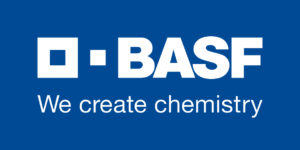
BASF SE
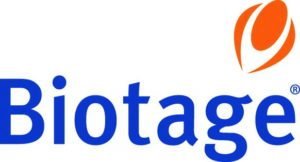
Biotage

Lhasa Limited

PhosphonicS
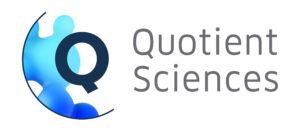
Quotient Sciences
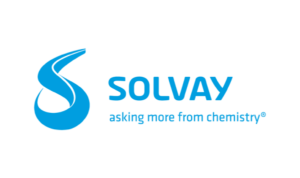
Solvay

Symeres
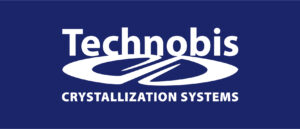
Technobis Crystallization Systems

Zeon Corporation
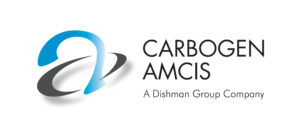
CARBOGEN AMCIS
Why exhibit?
- Meet delegates from key international companies
- Interact directly with senior scientists, department heads and key decision-makers
- Ability to demonstrate your company’s products or services
The conferences are designed to provide exhibitors with the maximum time to network with delegates.
Other Information
Benefits of Attending
- Continuing Professional Development (CPD ) keeps you up to date on current and emerging developments.
- Learn from a wide range of industrial case studies given by hand-picked industrial speakers.
- Take home relevant ideas and information that are directly applicable to your own work, with the full proceedings in colour and a CD of the talks.
- Save time. Our intensive, commercial-free programme means less time away from work.
- Network with the key people in the industry via the networking receptions
General Information
Registration for each conference includes:
- Attendance at all the sessions
- Set of colour conference proceedings
- Lunch & refreshments daily
- Unlimited access to the exhibition
- Place at the networking reception
Why Exhibit?
- Meet delegates from key international companies
- Interact directly with senior scientists, department heads and key decision-makers
- Ability to demonstrate your company’s products or services
The conferences are designed to provide exhibitors with the maximum time to network with delegates.
Sponsorship
Promote your company at one of our prestigious conferences with sponsorship packages to suit your budget.
Please contact Dr Claire Francis
FREE POSTER BOARD
Registered academic delegates can present a scientific technical poster FREE and have this published in the conference proceedings.
Please send an abstract of your poster by email.
Organic Process Research and Development
Programme

View our programme
Fee info
It was good. Never visited a Scientific Update conference, but will get it on my priority list. Very good – like the set-up, flow and topics. Very interested in process development.
Organic Process Research & Development Conference Delegate 2023
Thank you for the excellent conference. I enjoyed the scientific content and the networking opportunities. I will definitely recommend this conference to my colleagues.
The Formulation and Drug Delivery Congress Delegate
Become a speaker at one of our events
Share your expertise with a global audience of industry professionals. Scientific Update is continually seeking thought leaders and industry innovators to speak at our renowned conferences and training courses.
